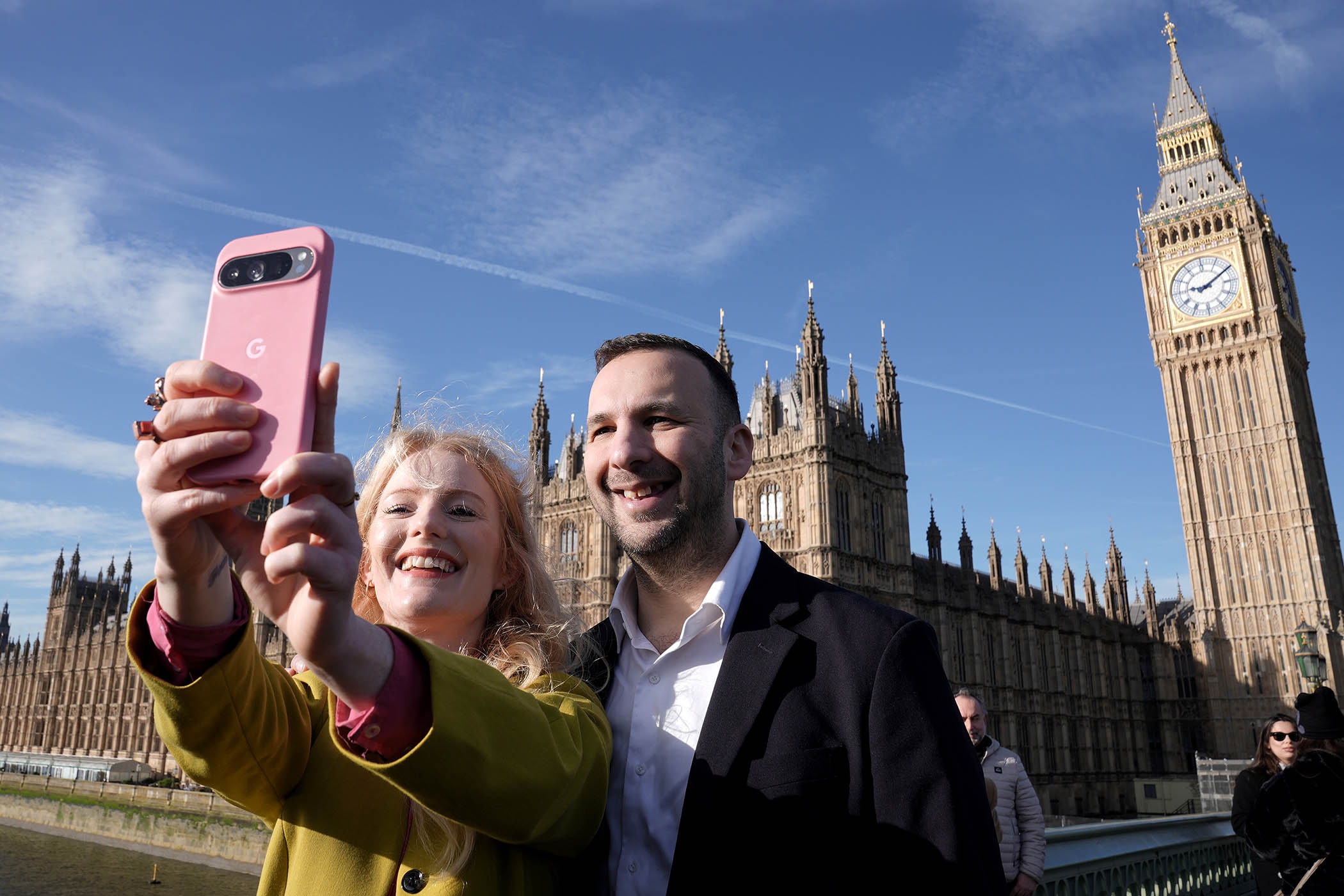A couple of months after the 2024 general election, I asked Morgan McSweeney, Labour’s chief strategist, whether he thought the Conservatives or Reform would be his party’s primary opponent at the next national contest. He gave what I thought was a candid and reasonable response, because it was the one I would have given myself at the time. He replied that he wasn’t yet sure of the answer.
Now he is. At Sir Keir Starmer’s recent encounter with morose Labour MPs, an occasion so crowded that it required a spillover room with a video link to accommodate all the attendees, the prime minister told them that “the Conservatives are not our principal opponent. Reform are our main rivals for power.”
The first thing to interrogate about this assertion is whether it is true. In terms of parliament, it isn’t. Reform has just a handful of MPs, a contingent that could fit in a small minibus. Even in their hollowed out state, the Conservatives have more than 100. Kemi Badenoch gets the automatic right to be first to respond to every prime ministerial statement and to put six questions to him every week when the Commons is sitting. Nigel Farage gets to intervene only if he catches the speaker’s eye. He wasn’t even present for the statement on the biggest reset with the EU since the Brexit referendum because the Reform leader had bunked off for a holiday in Clacton-on-Sea … no, sorry, make that the south of France.
The case for saying that Reform is shouldering aside the Tories to become the main opposition is based on opinion polls and its advances in the May Day elections. The latest poll of polls has Reform ahead on 30 points, more than double its vote share last July. Labour has wilted to a miserable 22. The Tories, the outfit that used to boast of being the world’s most successful party, have shrivelled to a dire third, at 17. One poll published in the past few days has the Conservatives slithering down into fourth place, behind the perky Lib Dems.
Sceptical old hands can tell you about the early 1980s when the SDP appeared poised to “break the mould of British politics”. Roy Jenkins and Shirley Williams won spectacular byelection victories. At its peak, the SDP/Liberal Alliance hit more than 50 points in the polls. It shot up like a rocket – and then came down like a stick. The challenge fizzled out and the blue-red duopoly reasserted itself.
Others find it entirely plausible that an unloved government and an unforgiven Tory party have created a perfect storm for Reform to exploit. Witness a new report from the Institute for Public Policy Research, a left-leaning thinktank. This puts Labour’s troubles in the context of a global trend in which rightwing populists now claim a larger share of the vote in western democracies than do parties of the centre-left. David Miliband, who sat in cabinet during the New Labour years, warns his party of the peril of being seen as “defending the status quo even as voters say it is failing”.
When the next election doesn’t have to happen before 2029, it is reckless to draw firm conclusions, but this is not deterring ministers from rushing to judgement. One of the cabinet’s most influential members tells me: “The next election will be very different to the last one. The politics we’ve seen elsewhere in Europe – Le Pen in France, the AfD in Germany – is coming to the UK. We now face a different kind of enemy on the right.” Another member of the cabinet recently offered me the gloomy prediction that Reform would garner at least a quarter of the vote when Britons next choose whom to put into No 10. Sir Keir is not only building up Mr Farage by portraying him as the primary challenger: the Labour leader is also beating down on the Tories. “A once great party is sliding into brain-dead oblivion,” he recently ridiculed them. “They are a dead party walking.” This is almost as scornful about the Conservatives as some Tories are about themselves.
The strategic wager of the Starmerites is that they can turn the next election into a starkly binary choice
The strategic wager of the Starmerites is that they can turn the next election into a starkly binary choice
There are tactical incentives for Sir Keir to talk up Reform. While its surge troubles Labour, it poses a potentially existential menace to the Conservatives. Some Tories seek an electoral pact, but Reform has little incentive to talk while it is on a roll. The Tory/Reform split helped Labour secure its huge parliamentary majority; years of prolonged struggle to be the chief standard bearer of the right would probably enhance Labour’s chances of securing a second term.
Sir Keir’s strategists also think Mr Farage is a potent bogeyman to instil fear and quell division in Labour’s ranks. Those who were there for the prime minister’s encounter with his MPs report that more than two dozen of them asked hostile questions, including one demand for the firing of whoever wrote the “island of strangers” speech about immigration. In this space last weekend, I set out why the removal of the winter fuel payment from 10 million pensioners has been so disastrous for the government. Three days later, Sir Keir told everyone a retreat is coming. This has not delighted those Labour MPs who loyally “ate shit” by defending the cut, while emboldening those demanding more U-turns on welfare cuts and child poverty.
The strategic wager of the Starmerites is that, for all the talk of this being an era of multiparty politics, they can turn the next election into a starkly binary choice. “The real fight will be the centre-left versus the Reform right,” says a key cabinet member. Make the battle for Britain a Starmer v Farage presidential contest, and the assumption is that discontented progressive voters will be squeezed back into Labour’s column.
Newsletters
Choose the newsletters you want to receive
View more
For information about how The Observer protects your data, read our Privacy Policy
Starmer loyalists will say that acknowledging the rise of Reform is embracing reality and preparing Labour for a new kind of struggle. Others think it dangerous to give a helping hand to Mr Farage’s mission to obliterate the Tories. One cabinet member calls it “a risky bet on the roulette wheel” to depict Reform not as a protest party, but as a contender for power. This lends credibility to Mr Farage’s claims to be marching towards Downing Street.
Building him up in the hope of knocking him down is quite a gamble. Perhaps a bigger one than they yet know.
Photograph by Carl Court/Getty



